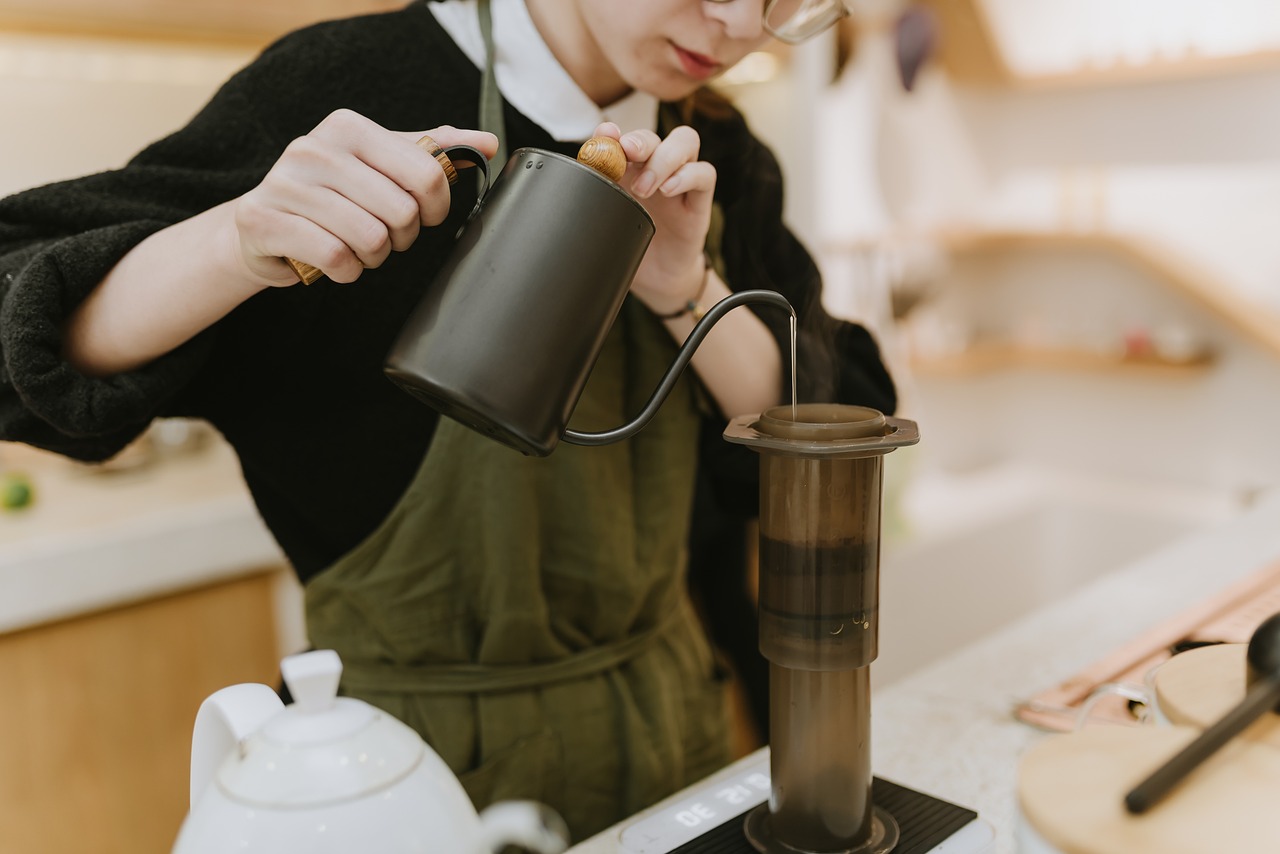Water is life, and coffee is the gasoline of life. These two improve our daily lives. We rely on water to stay hydrated and on coffee for that much-needed caffeine boost. Whether you're sipping a morning latte to kickstart your day, grabbing a cup during lunch to stay sharp, or simply indulging in your coffee cravings, the balance between these two is key.
We tend to focus on the beans, grind, and brewing method when brewing coffee. Yet, a critical element often flies under the radar: water quality. Believe it or not, water makes up about 98% of your cup of coffee, meaning its quality can dramatically influence your brew's flavor, aroma, and overall experience.
Brew the Perfect Cup with the Right Water and the Travel Coffee Press—OVRLNDR® for fresh, flavorful coffee no matter where your adventures take you.
What is the Best Water Quality for Coffee?
The best water for coffee brewing should be clean, fresh, and impurities-free. Ideally, you want water with a balanced mineral composition. The presence of certain minerals, such as magnesium and calcium, can enhance the extraction of flavor compounds from coffee grounds. Tap water may contain chlorine or heavy metals, which can lead to off-flavors in your brew.
Pure water ensures the coffee's natural flavors shine through, allowing you to enjoy the full spectrum of aromas and tastes your beans offer.
Recommended water parameters include:
- TDS (Total Dissolved Solids): Between 50 to 250 mg/L is ideal.
- PH Level: The coffee should be slightly acidic, around 6.5 to 7.5. This balance helps extract flavors without making the coffee taste bitter or flat.
- Water Temperature: Water temperature also plays a significant role. If the water is too hot, it can over-extract the coffee, leading to bitterness; if it's too cold, it can under-extract, resulting in a weak cup. For pour-over and drip brewing, aim for a temperature between 195°F to 205°F (90°C to 96°C). If you're using a French Press, water just off the boil at around 200°F (93°C) is ideal. For cold brew, use cold or room temperature water and allow it to steep for 12 to 24 hours for the best results.
How Does Water Affect Brewing?
Water goes through a fascinating cycle in coffee brewing from when it's sourced to when it touches your lips. It starts at the water source, where quality matters. Then, during brewing, it interacts with coffee grounds, facilitating the extraction of flavors. Finally, the brewed coffee is enjoyed, showcasing the influence of water quality throughout the process.

The water's composition, temperature, and brewing time directly influence the extraction process. Here's how:
- Coffee-to-water ratio: The right amount of water can ensure optimal flavor extraction. A 1:15 to 1:18 ratio of coffee to water is typically recommended, depending on your taste preference.
- Extraction Dynamics: Water chemistry, including its PH and mineral content, influences the solubility of various coffee compounds, affecting flavor extraction.
Water temperature range optimizes the extraction of oils, acids, and flavors from coffee grounds.
Specialty coffee often requires specific water conditions to highlight unique flavors. Baristas and enthusiasts alike understand that water quality can make or break a brew. Some coffee varieties thrive in certain water profiles, making it essential to experiment and find the best fit for your beans.
Ready to taste the difference that quality water can make in your coffee? Try brewing with pure, balanced water using these single-origin beans. Shop now and enjoy a richer, more flavorful cup every time.
The best water quality for coffee should have a balanced mineral composition, a TDS level between 50 and 250 mg/L, and a pH level between 6.5 and 7.5.
Yes, the type of water significantly affects the taste of coffee. Tap water may contain impurities that can lead to off-flavors, while filtered or bottled water can enhance the coffee's natural flavors.
Pure water is essential because impurities can interfere with flavor extraction, leading to undesirable tastes in your coffee.
Water affects brewing through its composition, temperature, and the coffee-to-water ratio, influencing flavor extraction and overall taste.
Bottled water is often a great option, especially spring water with a balanced mineral profile.
Why Water Quality Matters in Coffee Brewing